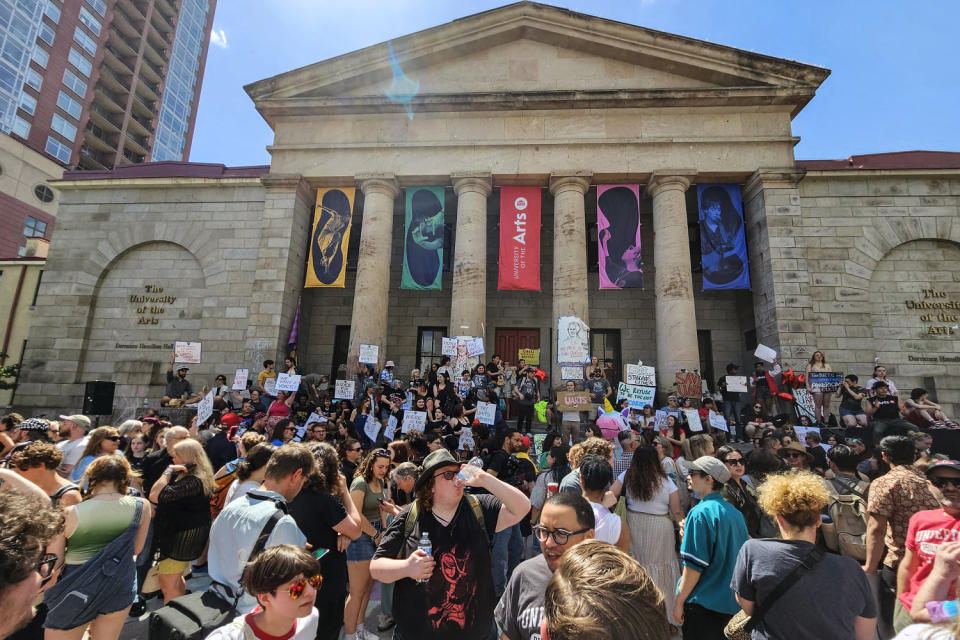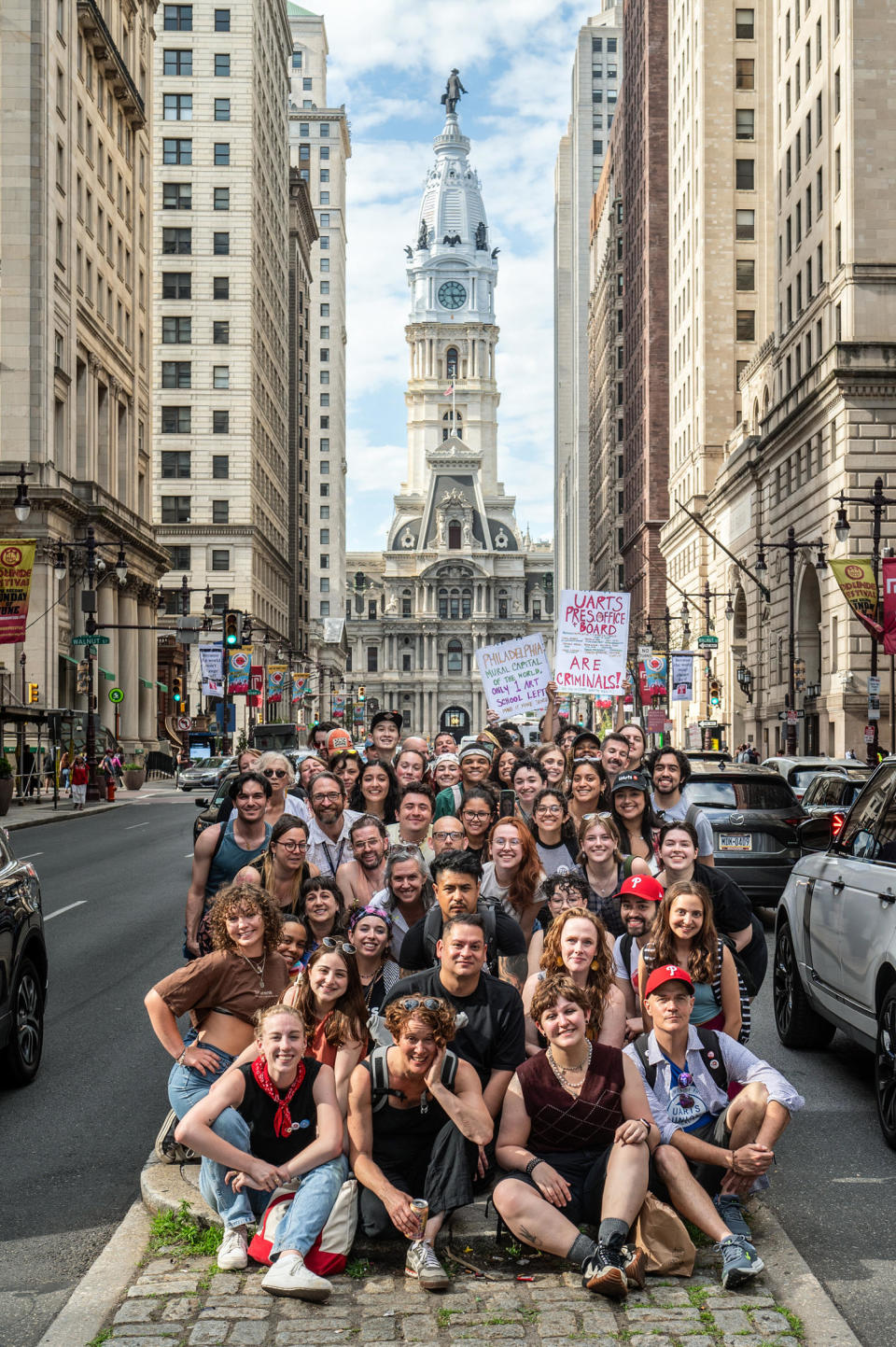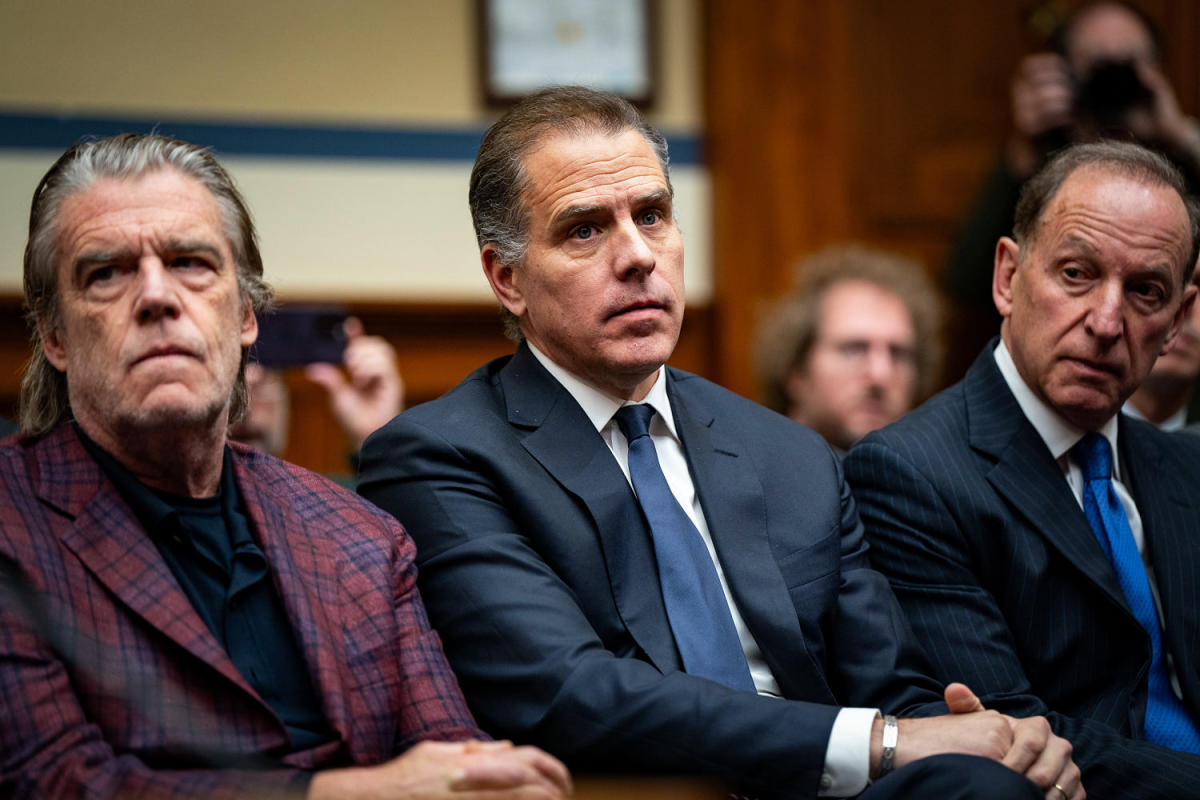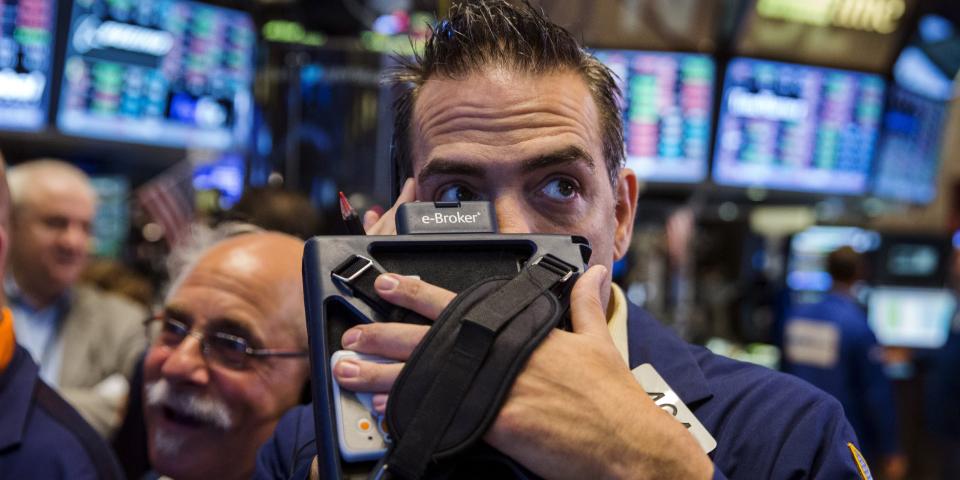Students and staff members from the University of the Arts in Philadelphia are scrambling to figure out their next steps after the school’s abrupt closure last week and are calling on the university to answer questions about why it shut down so quickly.
The university announced it would be shutting its doors in a statement on May 31, after news had already begun to leak about an hour and a half earlier, saying in part that it “has been in a fragile financial state, with many years of declining enrollments, declining revenues, and increasing expenses.”
The nearly 150-year-old university, a longtime home for artists of all kinds, shut down a week later on June 7, leaving its more than 1,000 students and hundreds of faculty and staff confused and anxious.
Among them is Owen Spaloss, who walked across the stage at the university’s graduation in May, but still needs to complete a three-credit summer internship to receive his degree in creative writing. The unexpected shutdown has put his once imminent degree completion at least temporarily out of reach.
“A lot of these universities don’t have a creative writing major, and even if they do, there’s no guarantee that they would accept all of my credits or that they would accept scholarships,” Spaloss said.
“The only reason I can afford to go to the University of the Arts is because of the donors and the scholarships that I’ve gotten. I couldn’t financially afford this on my own.”
News of the University of the Arts’ closure has led to protests on campus by students and staffers alike who question why the university didn’t alert its community sooner or better prepare for its financial failure. The university did not respond to requests for comment.
Krista Apple, who has worked at the university for more than 10 years and was serving as the director of the bachelor of fine arts in acting program, said she didn’t initially believe the school was closing after learning about it first in a Philadelphia Inquirer article.
“I thought it was a joke, or I thought the Inquirer had gotten something wrong. I thought maybe somebody was pranking me,” Apple said.
Students and staff said the Inquirer article made the rounds on social media, group texts and emails before the university released a statement. Some community members said they first heard about the closure on TikTok.
“It continues to be disorienting and heartbreaking. This is a massive loss of community for all of us who taught and worked together for many years. It’s also a massive loss for the city of Philadelphia,” Apple said. “Our students really were one of a kind, both in terms of the cohort of humans that they were, but also individually.”
The university said in the statement announcing its closure that it had “worked hard this year alongside many of you to take steps that would secure the University’s sustainability. The progress we made together has been impressive.”
“Unfortunately, however, we could not overcome the ultimate challenge we faced: with a cash position that has steadily weakened, we could not cover significant, unanticipated expenses. The situation came to light very suddenly. Despite swift action, we were unable to bridge the necessary gaps.”
The university’s accreditation was withdrawn June 1, three days after the school notified its accrediting body that it would close, the Middle States Commission on Higher Education said in a news release on May 31.
The Philadelphia City Council voted June 6 to hold hearings to examine the university’s sudden closure and its impact on the city’s higher education system and the school’s current students and staff.
Pennsylvania Attorney General Michelle Henry’s office confirmed to NBC News that it is “reviewing the circumstances of the closure and any transfer or loss of assets.”
DJay Jean, a rising sophomore who was studying vocal performance at the University of the Arts, said attending college has been a personal milestone.
“I’m a first-generation American, let alone I’m a first-generation student. My dad did not finish high school. My mom didn’t go to college,” Jean said.
“I grew up with just my father and it wasn’t a great upbringing. I eventually ended up in foster care at 16,” Jean said. “College never felt like an option to me financially.”
Jean was able to attend the university after receiving several scholarships, taking out loans and working part-time jobs. But now, they are unsure of what’s next and said they feel trapped after signing an apartment lease in Philadelphia.
“I spent so much money to go to this school, and I put so much trust in the faculty and the board. It’s an investment,” Jean said.
“You would think that after putting so much more money into something when it’s going away, the people responsible would want to inform you, and they’d want to let you know, ‘Here’s what’s going on.’ But they weren’t interested in that. And it made me feel very disrespected and made me feel like I wasted my money,” they added.
The university is facing criticism from students and staff about what they say has been a lack of communication and transparency from the administration.
Several students sent videos to NBC News showing demonstrations, performances and marches at the school.

They also said community members had been locked out of Hamilton Hall, one of the main buildings on campus, at one point during the demonstrations.
“They shut off the power to Hamilton Hall. … They didn’t want us to demonstrate. They closed their bathrooms to us and they shut off the power,” Jean said.
The university scheduled a virtual town hall on June 3 with a cap of 500 attendees, but it was canceled minutes before it was scheduled to start, according to several students. The university’s president, Kerry Walk, resigned the next day.
On the university’s official last day, June 7, campus community members who had been protesting and camping out in front of Hamilton Hall organized a “Last Jam” event to show their frustration and process the shocking news together.
Apple said staff were also called into a virtual meeting on the school’s final day.
“We were effectively fired en masse via Zoom by a member of the management team that had been hired, someone we had never met before,” she said.
“Based on the brief information they shared, I have reason to believe that I will receive at least my next paycheck, which is due at the end of June. But I’ll be honest, I’m not holding my breath,” Apple said.

Apple said she wants those who had been charged with making decisions about the university’s fate to face consequences for its closure.
“I would like to see some accountability, not just from the most recent administration, but also from the board of directors and also from the previous administration too, that was working really closely with this budget,” Apple said. “Because I just keep wondering at what point was it clear that this university’s finances were not salient, and I can’t fathom the notion that it was just two weeks ago, on May 29, that someone looked at our books and went, ‘Oh, no, we can’t keep going.’”
The board’s chair did not respond to a request for comment.
This week, the university announced a call center and support email for the campus community.
Students have also received an email confirming that any payments made for the summer or fall semesters will be refunded. Meanwhile, a Temple spokesperson said the university is exploring a potential merger with the school.
“The amount of support and care from our education and arts community across the country is one of the things that gives me hope. And it just proves to me that artists are incredibly resilient. And no matter how much funding we don’t have, we are not going away,” Apple said.
Originally founded in 1876, the University of the Arts is just the latest arts institution to shut down in Pennsylvania.
The Pennsylvania Academy of the Fine Arts closed its doors in January, with some of its students enrolling in the University of the Arts.
Last year, at least 14 colleges and universities shut down or merged according to Inside Higher Ed, amid lower college enrollment rates and the pressure of inflation.
According to the National Center for Education Statistics, college enrollment fell from about 18 million in 2010 to about 15.8 million in 2023.
Despite the chaos and confusion, several students have found solace with those in the extended arts community.
“If nothing else, we are showing that we are committed to each other in our community. We’re showing that we are not willing to just go quietly into the night. We are going to stand strong and show what we stand for, because as artists it’s already hard enough to make it in the world,” Spaloss said.
“Our schools are closing down, but that doesn’t mean our community shuts down, too,” Jean added.
This article was originally published on NBCNews.com
Signup bonus from





